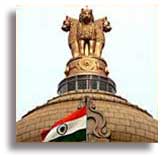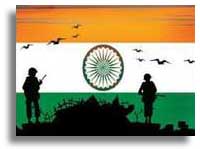INDIAN CIVIL SERVICES
Career in Indian Civil Services
Indian Civil Services is one of the most challenging careers to pursue for individuals who would be associated with the government to work for people of the nations providing different services to the common man of the nation. Indian Civil services act as the back bone of the Indian government which manages the state administrations in different departments.
Indian Civil Services is considered as the most prestigious and powerful profession. As compared to private sector this profession has a greater share of job security. Originated as the elite service of Indian Government under the British Colonial Rule of India this career continues to work differently since then.
Job Description and Nature of work
Indian Administrative Service

Indian Police Service The IPS (Indian Police Service) are the officers who are responsible for public safety and security. The IPS officers mainly take care of law and order at the district level and the responsibility is shared with the IAS officers like crime prevention, detection, traffic control, accident prevention and management. Once after the completion of probation period an IPS officer, begins his/her career as an Assistant Superintendent of Police of a sub-division. The Police service has been divided into various departments like Crime Branch, Criminal Investigation Department (CID), and Home Guards and Traffic Bureau
Indian Forest Service (IFtS) Indian Forest Service was established for the efficient administration of the country's forest reserves.
Indian Foreign Service (IFS) The Indian Foreign Service deals with the country's external affairs, including diplomacy, trade and cultural relations. The service is responsible for administration and the main activities of Indian missions abroad, and for the framing and implementation of the Government's foreign policy. Probationers at first work at the External Affairs Ministry and then they are posted to the Indian Mission of a particular country, as third secretaries.
Indian Railway Service
- Indian Railways is most essentially responsible for the running of India's vast railway network. There are openings for non-technical and technical engineering cadres in the railways.
- The Indian Railway Traffic Services (IRTS)- is responsible for freight, passengers and movement of trains
- The Indian Railway Personnel Services (IRPS)- is responsible for recruitment and administration of staff,
- The Indian Railway Accounts Services (IRAS)- is responsible for maintenance of accounts,
- The Railway Police Service (RPS) - is responsible for providing security to railway properties such as railway tracks, personnel, equipmen,t etc and they get through the Civil Services examination.
- The engineering services (IRSE) have a very different recruitment procedure.
Indian Postal Service
This Service is usually responsible for efficient and smooth functioning of the postal and telegraph services. Officers after training with field officers are appointed as Senior Superintendent of Post Offices, Assistant Post Master General through out the country and also in the Ministry at the centre.
Indian Customs and Central Excise Service
The Indian Customs and Central Excise Service (IC&CES) is generally concerned with two main aspects, mainly Customs and Excise. Customs here is concerned with the checking and levying of duty on taxable goods which are brought into the country, the Excise department is mostly involved with the taxation of goods which are manufactured within the country.
Audit and Accounts Service
Indian Audit & Accounts Service department comes under the Controller and Auditor General of India (CAG) which is responsible for the maintenance and audit of accounts all around the states, as well as Union and State Governments. The officers in this department work in the audit offices under CAG and in central ministries and state governments.
Indian Information Service (IIS)
IIS department comes under the Ministry of Information and Broadcasting which is responsible for running government owned broadcasting and advertising agencies which are centre specific like All India Radio, Doordarshan and DAVP. These services are also responsible for handling press and public relations for the various central ministries, public sector enterprises and defense forces at home as well as abroad.
Job Opportunities & Prospects

Eligibility
- Educational Qualifications: Graduates in any discipline from a recognized university. Candidates who are having professional and technical qualifications recognized by the government are also eligible. Those candidates who have appeared for the examination in the final year but do not have the result can also apply but they would have to produce proof of passing the exam with their application for the Main Exam.
- Age Limits: Candidate must have atleast attained the age of 21 years and must not have attained the age of 30 years on the 1st August of the year in which examination is being held. The upper age limit might be relaxed with respect of the SC/ST and other backward classes.
- Personal Attributes: The aspiring candidates have been expected to have keen interest in the General Studies and are supposed to have a good amount of interest in current affairs. Regular and mostly detailed reading of a good national newspaper and even the standard competition magazines and a basic book on general knowledge is the essential pre-requisite. Another important point is efficient time planning.
- Physical Standards: Candidates must be physically fit accordingly with the requirement of the physical standards for admission to Civil Services Examination.
- Reservation : are made for candidates belonging to Scheduled Castes, Scheduled Tribes, Other Backward Classes and physically disabled categories with respect to the vacancies as may be fixed by the Government.
Application Procedure
- UPSC have developed an application form common for all their examinations which will be processed on computerized machines and is obtainable from the designated Head Post Offices/ Post Offices throughout the country against a specified cash payment.
- Notification along with application forms for the civil service exam will appear in all the daily newspapers and the Rodger Samachar/ Employment News by the end of December each year
Examination and Selection:
Exam Details |
Interview:
Candidates who in the examinations obtain minimum qualifying marks in the written part of the Main Examination shall be summoned for an interview. It is usually conducted in the month of April/May every year. Candidate will be asked questions on matters which are of general interest. The object of the interview is to assess the personal suitability and judge the mental caliber of the candidate.
The Indian Civil Services are organised into two main sections.
(i) All India Services and (ii) The Central Services.
All India Services:
Indian Administrative Service (IAS)
Indian Police Service (IPS)
Indian Forest Service (IFtS)
Central Services -Groups A&B
